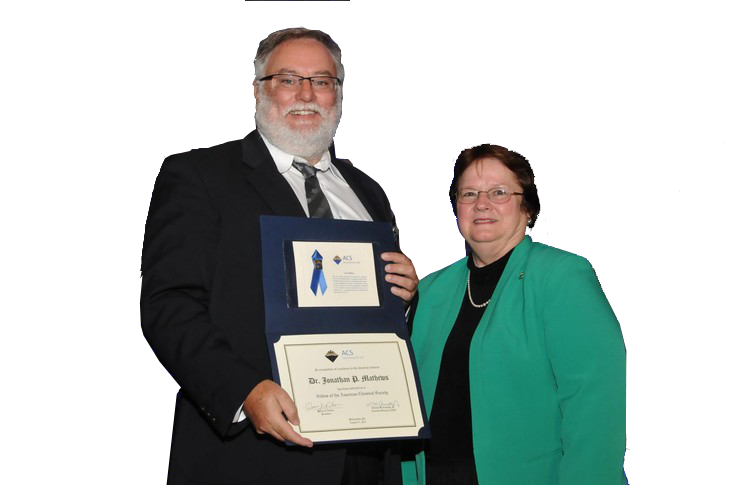Honors and Awards for researchers and affiliates of the EMS Energy Institute
Pisupati elected a 2018 American Chemical Society Fellow
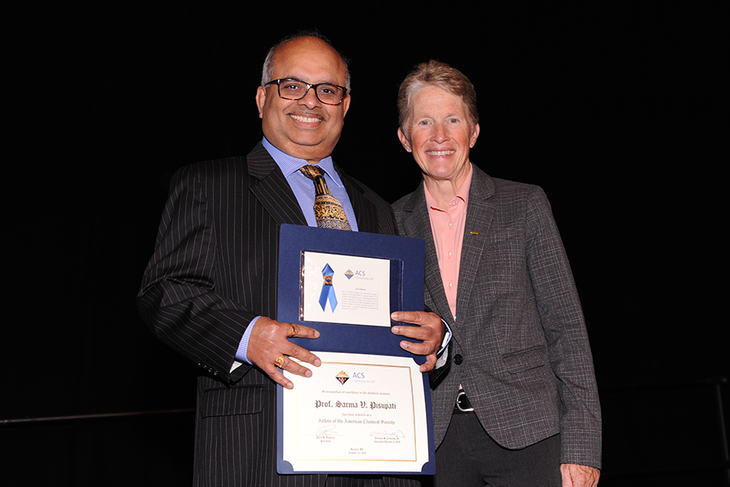
Image: ACS/Peter Cutts Photography
Sarma Pisupati, professor of energy and mineral engineering, was elected a 2018 Fellow by the American Chemical Society (ACS). Pisupati was one of fifty-one scientists selected as part of the 2018 class of ACS Fellows. He was honored during the society’s fall national meeting held this past August in Boston.
The ACS Fellows Program recognizes and honors members of the American Chemical Society for their outstanding achievements in and contributions to the science and the profession and for their equally exemplary service to the ACS Society. Only 1,059 of the society’s more than 157,000 members from academia, industry, government labs, and small business have been distinguished with this honor.
“This is a great honor to be appreciated by professional colleagues and elected a Fellow for my work in helping to solve industrial problems through fundamental research and training the future workforce,” Pisupati said. “I am very grateful for this recognition.”
The ACS recognized Pisupati for “contributions impacting the availability and operation of gasifiers and fluidized bed combustors through excellence in fundamental and applied clean energy research, and outstanding energy engineering education.” His contributions to the ACS community were also cited. He served in several leadership roles in the ACS Division of Fuel Chemistry and Division of Petroleum Chemistry, initiated a trust fund for student travel, revitalized technical programming, and established an outreach web portal.
Energy Institute Director wins American Chemical Society National Award
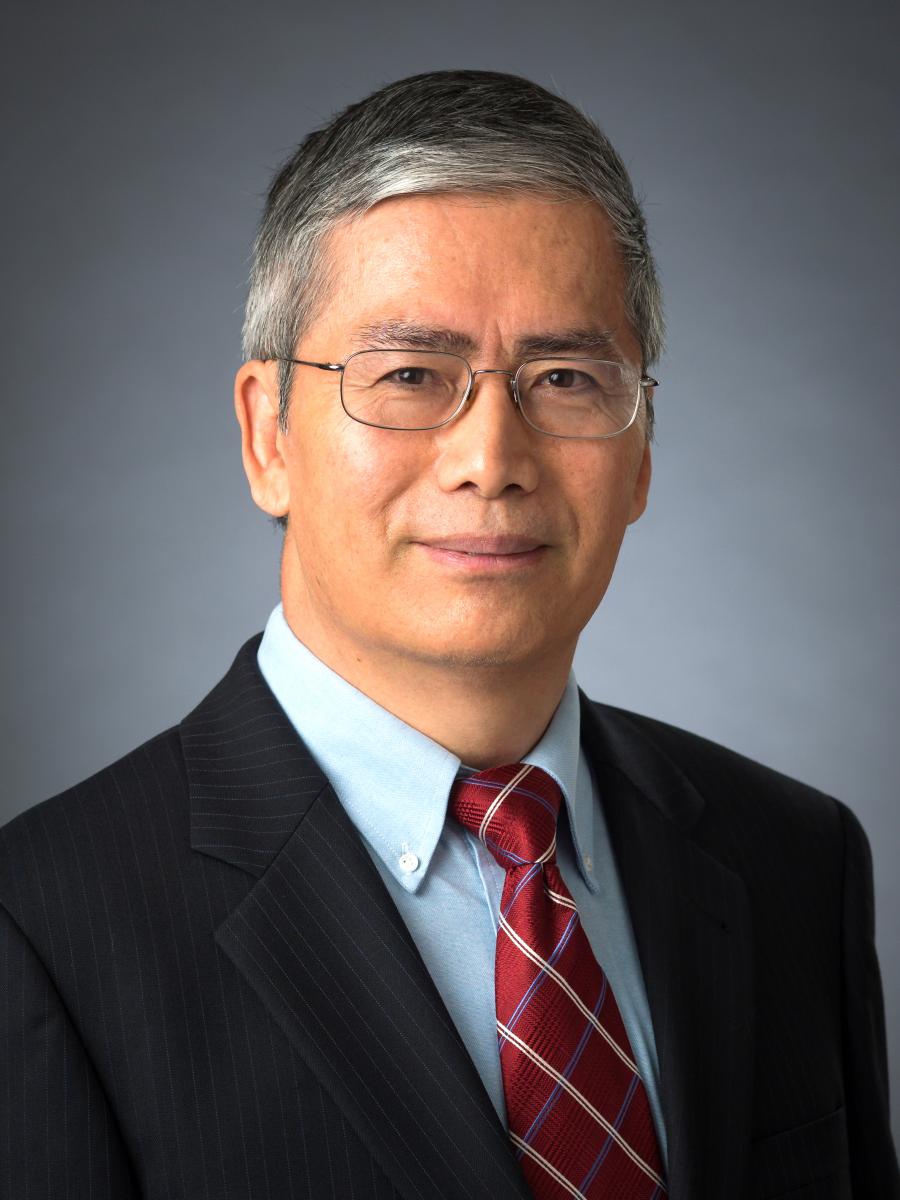 Chunshan Song, EMS Energy Institute and University Coalition for Fossil Energy Research (UCFER) director, was selected by the American Chemical Society (ACS) to receive the George A. Olah Award in Hydrocarbon or Petroleum Chemistry. Song was recognized for his groundbreaking research in carbon dioxide capture and utilization as well as adsorption and catalysis in fuel processing. Song will be honored at a reception in April 2019 held during the 257th ACS National Meeting in Orlando, Florida. The award was originally established in 1948 as the ACS Award in Petroleum Chemistry. It was renamed in 1997 after the Nobel laureate George A. Olah to recognize, encourage, and stimulate outstanding research achievements in hydrocarbon or petroleum chemistry.
Chunshan Song, EMS Energy Institute and University Coalition for Fossil Energy Research (UCFER) director, was selected by the American Chemical Society (ACS) to receive the George A. Olah Award in Hydrocarbon or Petroleum Chemistry. Song was recognized for his groundbreaking research in carbon dioxide capture and utilization as well as adsorption and catalysis in fuel processing. Song will be honored at a reception in April 2019 held during the 257th ACS National Meeting in Orlando, Florida. The award was originally established in 1948 as the ACS Award in Petroleum Chemistry. It was renamed in 1997 after the Nobel laureate George A. Olah to recognize, encourage, and stimulate outstanding research achievements in hydrocarbon or petroleum chemistry.
Song awarded Honorary Professorship at Tianjin University
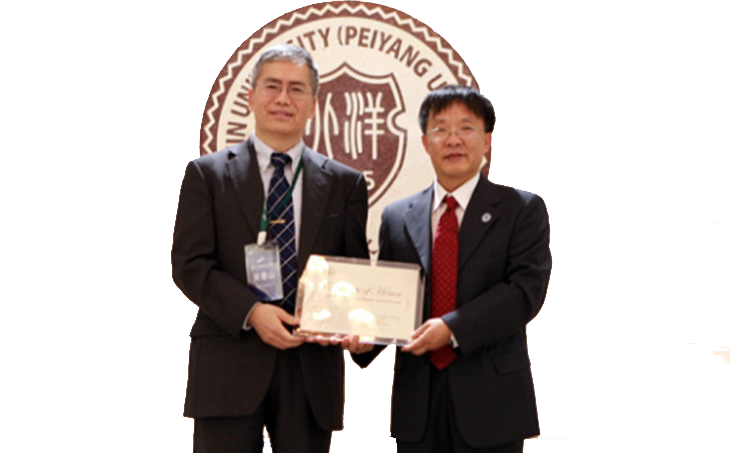 Chunshan Song, distinguished professor of fuel science and director of the EMS Energy Institute, was named an honorary professor by Tianjin University in China in 2017.
Chunshan Song, distinguished professor of fuel science and director of the EMS Energy Institute, was named an honorary professor by Tianjin University in China in 2017.
“Receiving the honorary professorship is a great honor for me, my research group, and for Penn State,” Song said. “Tianjin University is one of the oldest universities and one of the strongest national universities in engineering and science in China and has always been the top chemical engineering school in the nation.”
Song was invited to give a plenary lecture at the 18th Chinese National Congress on Catalysis held in Tianjin in 2017, an honor he said surprised him.
“I’ve been honored by the American Chemical Society and North American Catalysis Society as well as with guest or visiting professorships at universities in the United Kingdom, France, and China, but this is the first time I’ve been given an honorary professorship,” Song said. “I’m grateful for being honored for contributions to both energy and chemical engineering.”
He also was selected as a Global Alumni Fellow by Osaka University in Japan. Osaka University, one of the top national universities in Japan, established the Global Alumni Fellow to promote international collaboration in education and research. It is awarded to alumni who are academically active overseas. Song earned his master’s and doctoral degrees in applied chemistry from Osaka University.
Wang wins Outstanding Young Researcher Award at Carbon Dioxide Conference
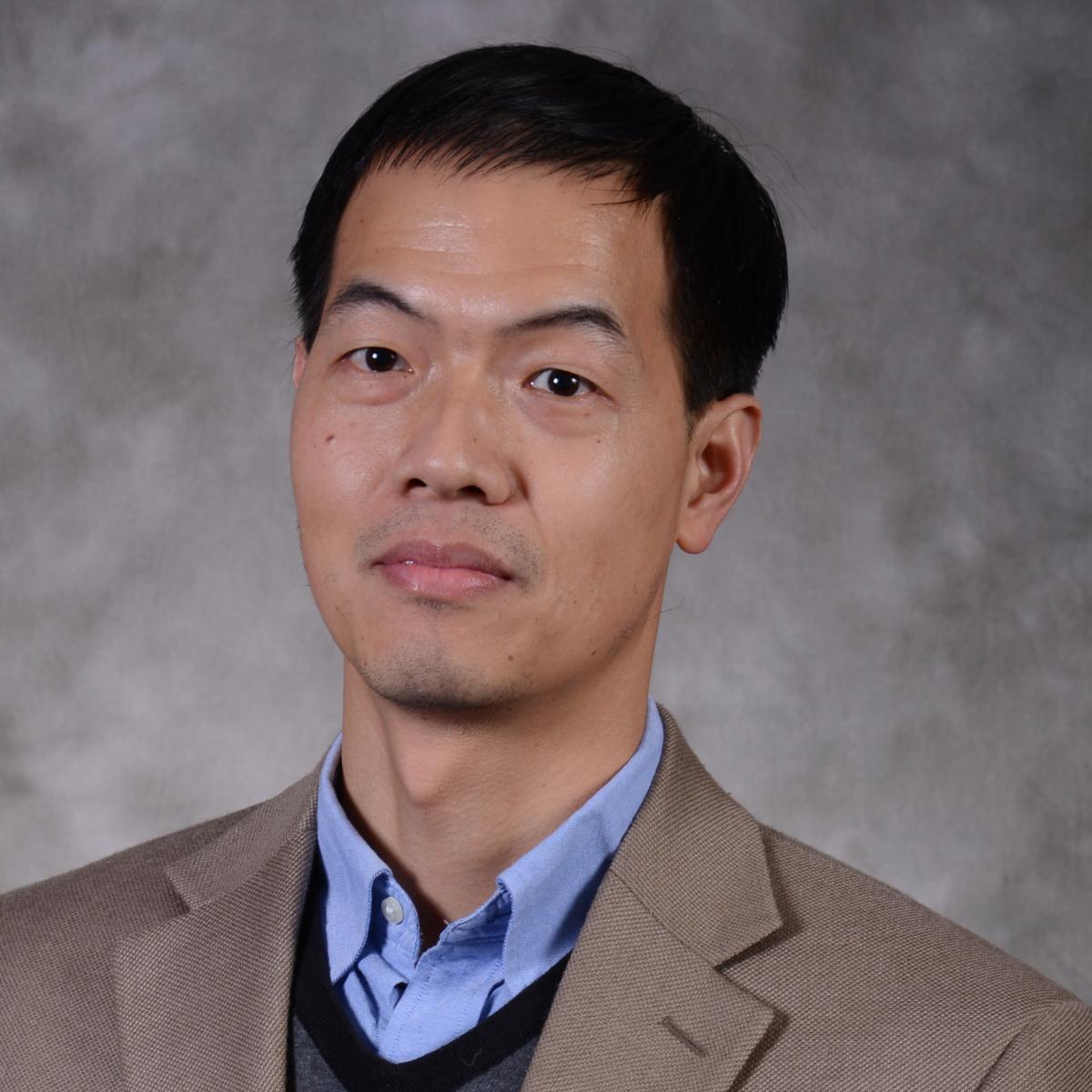 Xiaoxing Wang, an associate research professor in the EMS Energy Institute, received the Outstanding Young Researcher Award at the 15th International Conference on Carbon Dioxide Utilization (ICCDU), held in Shanghai, China in 2017.
Xiaoxing Wang, an associate research professor in the EMS Energy Institute, received the Outstanding Young Researcher Award at the 15th International Conference on Carbon Dioxide Utilization (ICCDU), held in Shanghai, China in 2017.
The annual conference is hosted by the Shanghai Advanced Research Institute at the Chinese Academy of Sciences and Shanghai Tech University. Presenters from across the globe attend the ICCDU to present research focusing on the capture, utilization, and storage of carbon dioxide in the hopes of reducing greenhouse emissions and offering carbon dioxide as a new carbon source for chemicals and fuels.
The Outstanding Young Researcher Award brings international attention to Wang’s development of carbon capture techniques and recognizes Penn State as a world leader in the advancement of green energy.
“This win is a milestone in my research career,” Wang said. “It encourages me to make more original and innovative contributions to my field.”
The award recognizes his developmental research into carbon capture using molecular basket sorbents. These sorbents, when fully developed, will be able to capture and repurpose the excess traces carbon dioxide in the atmosphere.
Petroleum professor wins international award in reservoir engineering
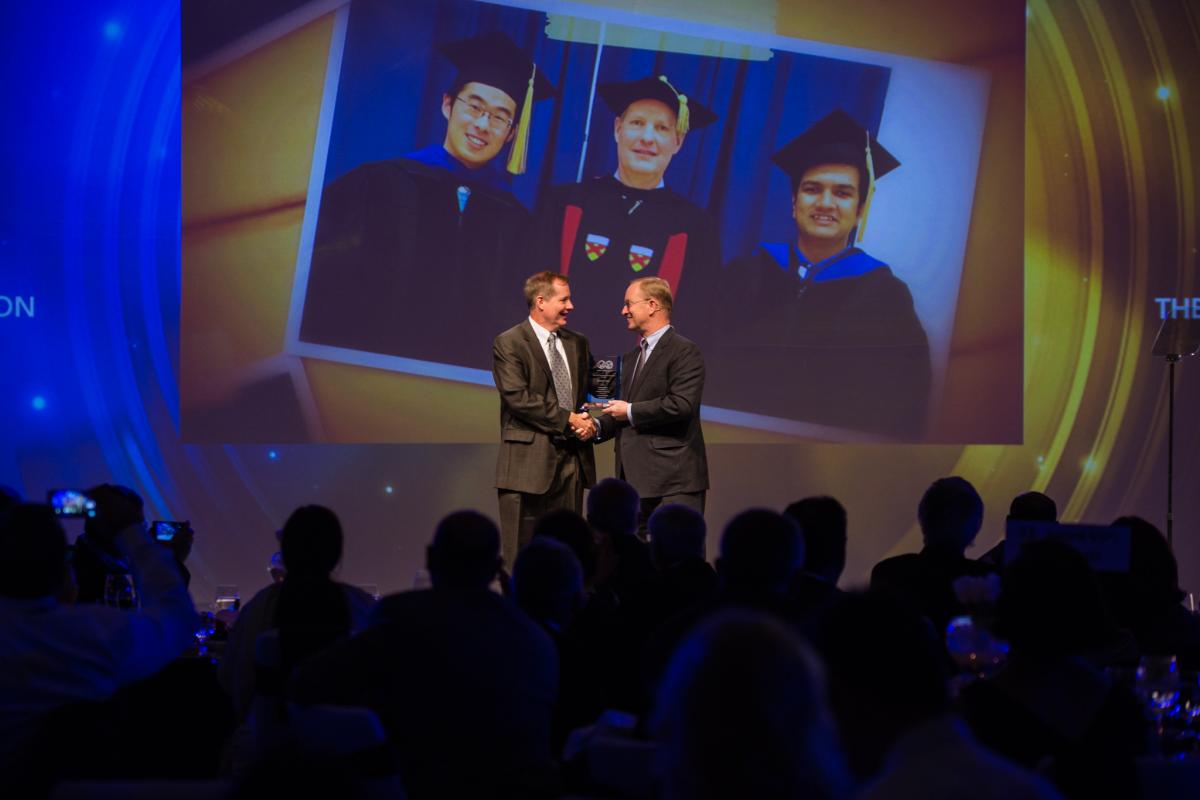 To have peers say that you are the absolute best worldwide in that field is really very amazing,” said Russell Johns, George E. Trimble Chair in Earth and Mineral Sciences and professor of petroleum and natural gas engineering, after winning the 2016 Society of Petroleum Engineers (SPE) Reservoir Description and Dynamics Award.
To have peers say that you are the absolute best worldwide in that field is really very amazing,” said Russell Johns, George E. Trimble Chair in Earth and Mineral Sciences and professor of petroleum and natural gas engineering, after winning the 2016 Society of Petroleum Engineers (SPE) Reservoir Description and Dynamics Award.
Johns, who was presented the award at the SPE Annual Technical Conference and Exhibition held in 2016 in Dubai, United Arab Emirates, specializes in advanced oil recovery. His research on using water, carbon dioxide, and surfactants has led to more efficient recovery practices.
About two-thirds of available oil is left behind even after primary and secondary recovery methods are employed, said Johns, whose research has contributed to significant gains in extraction of oil by tertiary methods. This leaves a large target for recovery by more advanced techniques.
Improving extraction efficiency is critical to the energy security of the United States because it closes the gap between imports and exports. Johns has advanced techniques to recover more oil including injection of carbon dioxide and surfactants (soaps). Along with his students, he recently published a major paper on prediction of phase behavior and oil recovery by forming microemulsions through injection of surfactants.
Mathews named a 2016 Fellow of the American Chemical Society
Jonathan Mathews, associate professor of energy and mineral engineering, was named a 2016 Fellow by the American Chemical Society (ACS). The ACS Fellows Program recognizes members for their outstanding contributions to science and the profession, and service to the ACS community. He was honored during the 2016 ACS National Meeting and Exposition.
“I’m incredibly honored,” Mathews said. “To be one of only fifty-seven inductees in a society of nearly 157,000 members speaks to the work that my colleagues and I have performed for our fields and the society.”
Mathews served as the inaugural co-chair of the ACS Energy and Fuels Technical Division, which was formed after the merger of two divisions, Fuel Chemistry and Petroleum. He also assisted the division with strategic planning and now serves as the membership chair.
In addition, Mathews served as chair for the 2013 International Conference on Coal Science and Technology. He also serves on the advisory board of the journal Energy and Fuels, as Penn State’s representative for the Coal Users Research Council, and as a reviewer and author of nearly seventy coal-related journal articles.
EMS professors, couple to research Colombian shale through Fulbright Awards
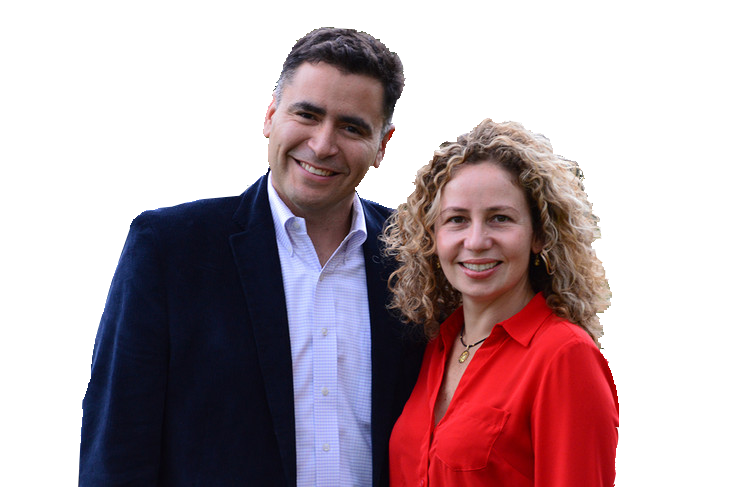 What are the odds that two spouses and Penn State professors both receive Fulbright awards for consecutive semesters in the same country?
What are the odds that two spouses and Penn State professors both receive Fulbright awards for consecutive semesters in the same country?
For Luis Ayala and Zuleima Karpyn, luck seemed to be on their side.
Ayala, the William A. Fustos Family Professor in Energy and Mineral Engineering and associate department head for graduate education, and Karpyn, the Quentin E. and Louise L. Wood Faculty Fellow in Petroleum and Natural Gas Engineering, both applied for the Fulbright-Colciencias Innovation and Technology Award from the Fulbright Program with the hopes of one of them landing the opportunity to conduct research in Colombia for a semester.
Karpyn and Ayala, both Energi Simulation Co-Chairs in Fluid Behavior and Rock Interactions, participated in the Fulbright program in the fall 2016 and spring 2017 semesters, respectively.
The U.S. Fulbright Program offers competitive, merit-based grants for students, scholars, teachers, and professionals, and aims to create mutual understanding among the many cultures of the world. The Fulbright-Colciencias Innovation and Technology Award is designed specifically for fundamental and applied research in Colombia.
“We wanted to use the Fulbright award to make a difference professionally as teachers and researchers,” Karpyn said, who is also a 2018 Penn State Administrative Fellow mentored by Nick Jones, executive vice president and provost.
Graduate student receives FAA student award
— shared from U.S. Department of Transportation
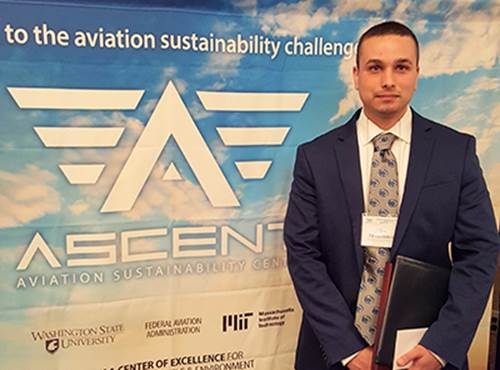 As a Penn State energy and mineral engineering doctoral candidate, Joseph Abrahamson ‘17 was selected to receive the Federal Aviation Administration’s (FAA) Centers of Excellence Student of the Year Award. Abrahamson was chosen for his research with developing data-based tools to predict emission indices for alternative fuels. His faculty adviser was Randy Vander Wal, professor of energy and mineral engineering, and materials science and engineering.
As a Penn State energy and mineral engineering doctoral candidate, Joseph Abrahamson ‘17 was selected to receive the Federal Aviation Administration’s (FAA) Centers of Excellence Student of the Year Award. Abrahamson was chosen for his research with developing data-based tools to predict emission indices for alternative fuels. His faculty adviser was Randy Vander Wal, professor of energy and mineral engineering, and materials science and engineering.
Abrahamson’s research focused on nonvolatile particulate matter (nvPM) emissions from conventional and alternative fuels. He worked on developing predictive tools based on data compiled across a comprehensive set of NASA-coordinated field campaigns to separate nvPM fuel dependence from engine combustor conditions in order to develop predictive tools for nvPM emission indices for alternative fuels, in partnership with GE Aviation.
“These predictive tools will be useful for testing future fuels and developing future FAA regulations, and they should enable future fuels to be evaluated without requiring expensive rigs or full-scale combustor testing,” Abrahamson said.
Ayala named Fustos Family Professor in Energy and Mineral Engineering
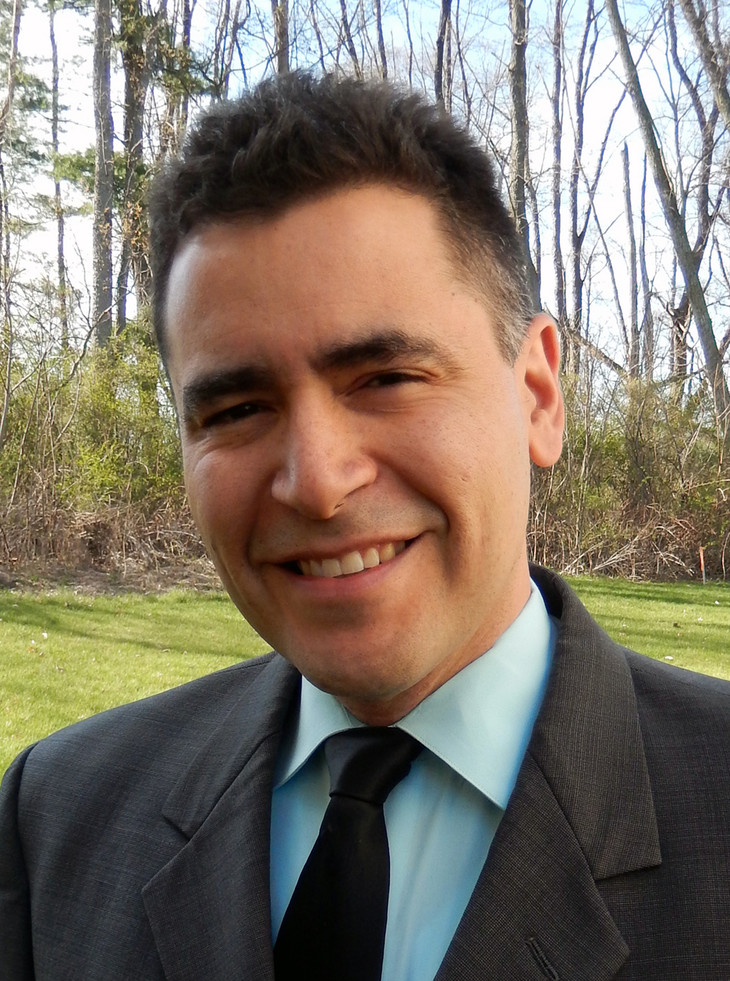 Luis Ayala, professor of petroleum and natural gas engineering, was named the inaugural William A. Fustos Family Professor in Energy and Mineral Engineering in 2016. The endowed professorship was established with a $1 million gift from William and Lindsey Fustos, both Penn State graduates.
Luis Ayala, professor of petroleum and natural gas engineering, was named the inaugural William A. Fustos Family Professor in Energy and Mineral Engineering in 2016. The endowed professorship was established with a $1 million gift from William and Lindsey Fustos, both Penn State graduates.
“I’m honored to have been selected as the first William A. Fustos Family Professor in Energy and Mineral Engineering,” Ayala said. “This financial support will help my research group further our natural gas production and engineering research and help elevate Penn State as a leader in this area.”
Ayala’s research focuses on natural gas engineering, gas well performance, hydrocarbon phase behavior, and advanced numerical modeling. His work addresses novel methods to understand the behavior of natural gas reservoirs in unconventional formations, and how those behaviors change as gas is produced. His team also investigates methods to optimize the production of natural gas, from extraction to storage, to transportation. He has authored or co-authored more than eighty publications in peer-reviewed scientific journals and proceedings.
“Luis is very deserving of this professorship. He has made numerous advances in different facets of natural gas engineering research, and this professorship will allow him to continue his excellence,” said Turgay Ertekin, former head of the John and Willie Leone Family Department of Energy and Mineral Engineering. “Mr. Fustos is a distinguished alumnus who has been a leader within the industry. His vision—that Penn State should be a pioneer in advancing the petroleum and natural gas engineering—is one we share here.”


